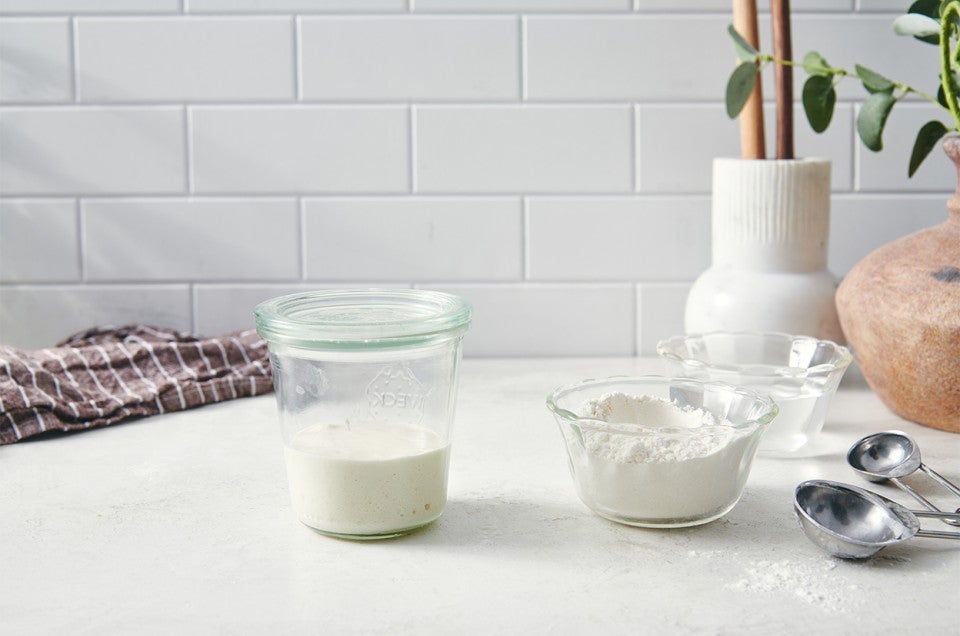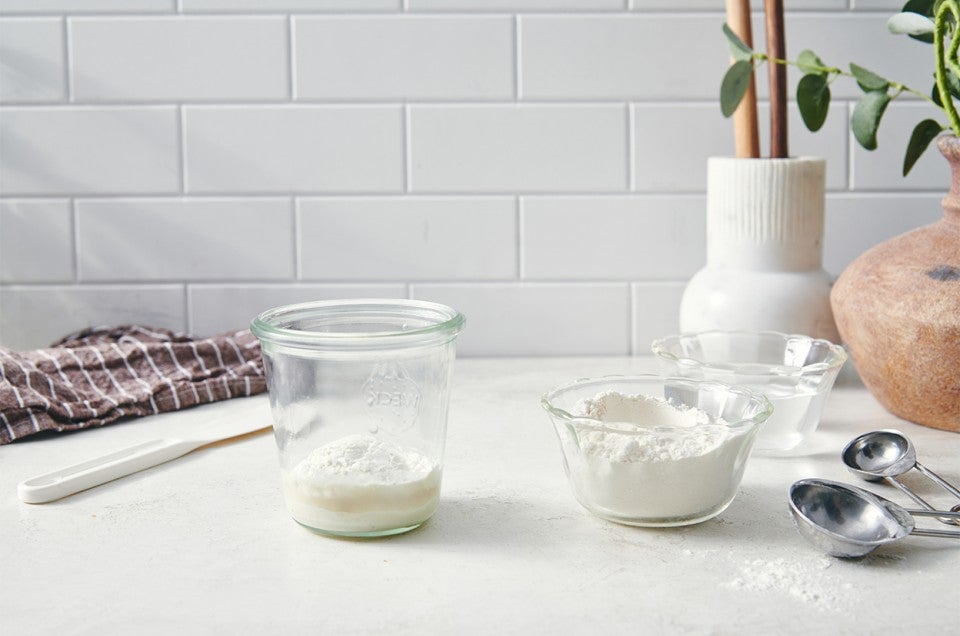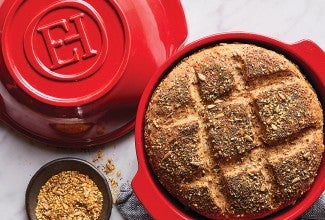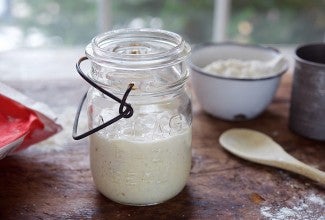A Smaller Sourdough Starter
Over the years our Baker’s Hotline has received many, many inquiries about the possibility of maintaining a smaller sourdough starter as a way of reducing the amount of discard generated. Now, if you’re happy with your regular maintenance routine and you're finding ways to put your starter discard to good use, don't change what you’re doing. But if you feel guilty about throwing out a lot of unused discard this feeding method — which uses a lot less flour — might be just what you’re looking for!
Read this recipe then head over to our blog post, Maintaining a smaller sourdough starter, for additional details, photos, and handy tips.




















